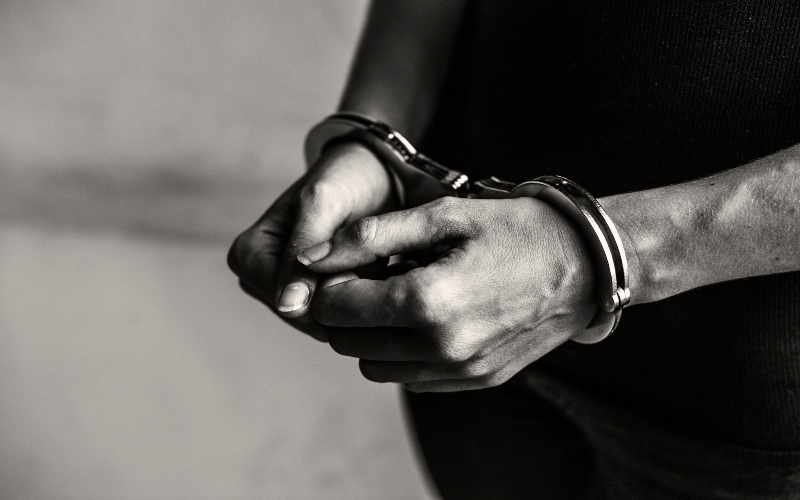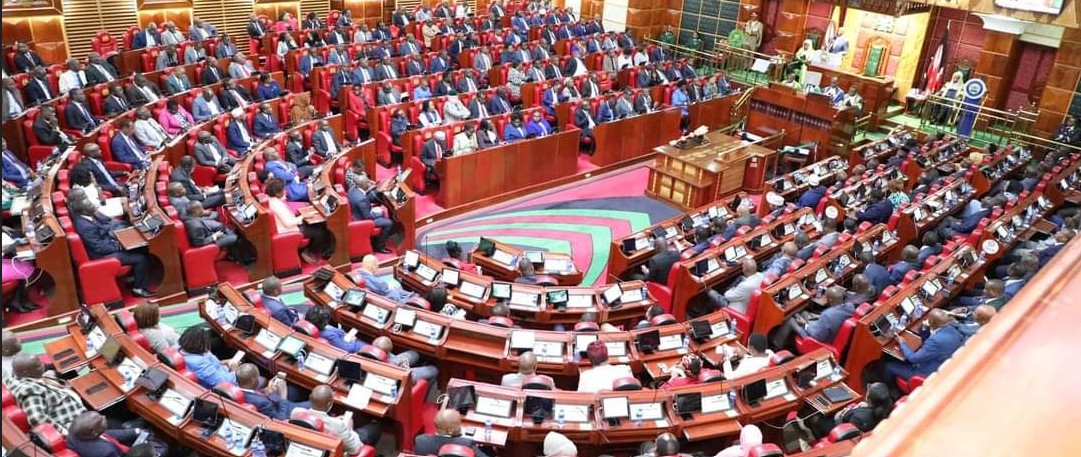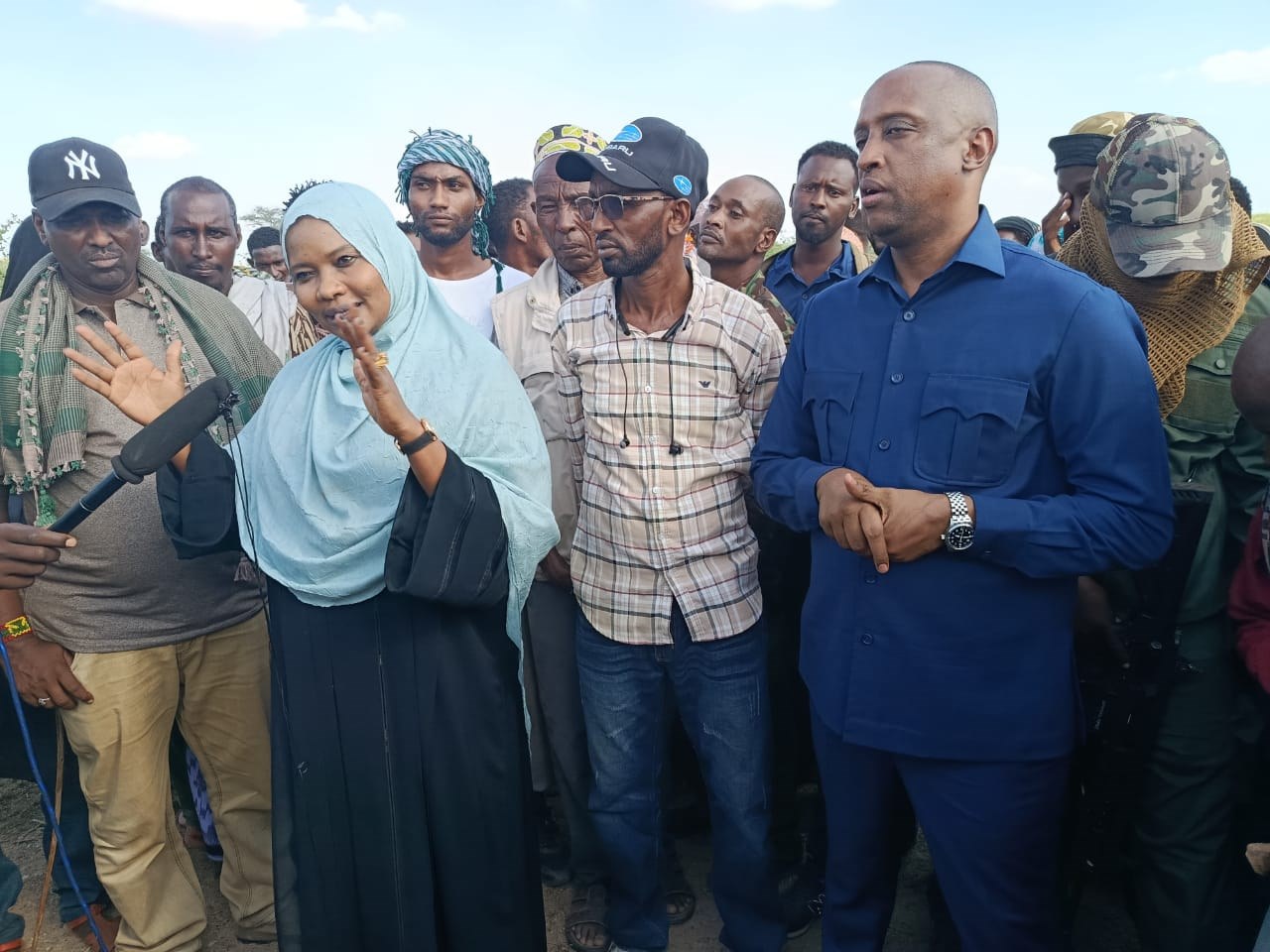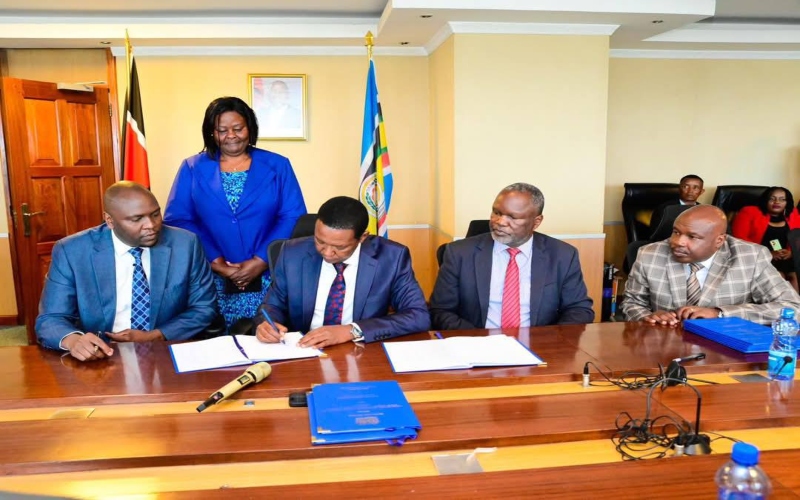Kagame accuses Burundi counterpart of lying about DRC military deployment

The situation unfolded in October 2023, with reports suggesting that Burundi quietly dispatched 1,000 soldiers near Goma, eastern DRC, purportedly to aid Kinshasa in combating the M23 rebels.
Rwandan President Paul Kagame has accused his Burundian counterpart and nemesis, Evariste Ndayishimiye, of deceiving him regarding the deployment of a separate military force to the eastern Democratic Republic of the Congo (DRC).
The situation unfolded in October 2023, with reports suggesting that Burundi quietly dispatched 1,000 soldiers near Goma, eastern DRC, purportedly to aid Kinshasa in combating the M23 rebels.
More To Read
- Kagame warns Africa to brace for AI-driven cyberattacks, urges united defence strategy
- Rwandan president Paul Kagame urges equal partnership between Africa, Europe
- President Paul Kagame urges open skies as Africa aviation summit kicks off
- DRC and Rwanda hold first joint oversight meeting to advance peace deal
- Kagame explains inspiration behind Kigali’s sports city
- Kagame lauds Dangote’s push for African-led development
During this period, Kinshasa was assembling a joint military force to confront the threat posed by the M23, allegedly backed by Rwanda.
According to United Nations (UN) reports, this force included various militia groups, such as the Democratic Forces for the Liberation of Rwanda (FDLR), held responsible for the 1994 genocide in Rwanda, and Wazalendo.
In an interview with Jean Afrique, that was published on Monday morning, Kagame said, "You can see he, Ndayishimiye, even told me lies."
He added, "When we detected through intelligence ... we learned that Burundi was preparing and sending troops to Goma and the North Eastern Congo to fight—not on the side of the East African Community Regional Force (EACRF)."
He continued, "I called by phone and asked to talk to President Ndayishimiye."
 Burundian President Evariste Ndayishimiye during the extraordinary Summit of East African Community Heads of State at the state house in Bujumbura, Burundi, on February 4, 2023. (Photo: Tchandrou Nitanga/AFP)
Burundian President Evariste Ndayishimiye during the extraordinary Summit of East African Community Heads of State at the state house in Bujumbura, Burundi, on February 4, 2023. (Photo: Tchandrou Nitanga/AFP)
Recalling the conversation, Kagame stated, "I said, 'President, I have heard that you are sending another force, other than that one of the EACRF, to fight on behalf of the government of Kinshasa.'
Kagame has been accused by both the DRC and Burundi of funding and supporting M23 and RED-Tabara insurgents in the two countries, respectively, but has denied the allegations.
The Rwandan leader further expressed, "I told him, 'Ndayishimiye, that the parallel deployment of Burundian forces contradicted the purpose for which the EACRF force was established. You, Ndayishimiye, are engaging in something different."
In response, the Burundian leader asserted, "No, no, that is not true. Whoever told you that must have told you a lie," as per Kagame's account.
Kagame, who shares the same language and culture, emphasised, "He, Ndayishimiye, swore to me that it's not true."
According to the Rwandan president, however, Burundian troops were seen in Goma two weeks after the conversation.
"So, you can see he (Ndayishimiye) even told me lies," Kagame remarked, adding, "I think it is because of primitivity because we still have politics of primitivity going on. That is what brings together Tshisekedi, Ndayishimiye, and FDLR."
 Burundi's security guards patrol in Bujumbura, Burundi, May 17, 2018. (Photo: File/AFP)
Burundi's security guards patrol in Bujumbura, Burundi, May 17, 2018. (Photo: File/AFP)
The Burundian government last month once again accused neighbouring Rwanda of backing rebels blamed for an attack in Bubanza province, Northwest Burundi.
Burundi said in a statement that the RED-Tabara group killed nine people, including a woman and a soldier, and injured five in the attack on February 25, 2024.
"The Government of Burundi condemns this despicable and barbaric act directed against an innocent population caught in the midst of mourning," a statement from the Burundian presidency said
Burundi did not give evidence to support its claims, which Rwanda, led by President Paul Kagame, has denied.
The group, which has a base in the eastern DRC province of South Kivu, emerged in 2011 and is now the most active of the rebel groups in Burundi, with an estimated force of between 500 and 800 fighters.
Last December, it killed 20 people near the border with the DRC.
The RED-Tabara is accused of waging deadly violence in the East African country since 2015 but had not been active since September 2021, when it carried out a series of attacks, including on the airport in the main city of Bujumbura.
Relations between Burundi and Rwanda have strained since the December attack, with Burundian authorities branding Rwanda a "bad neighbour."
Top Stories Today













































